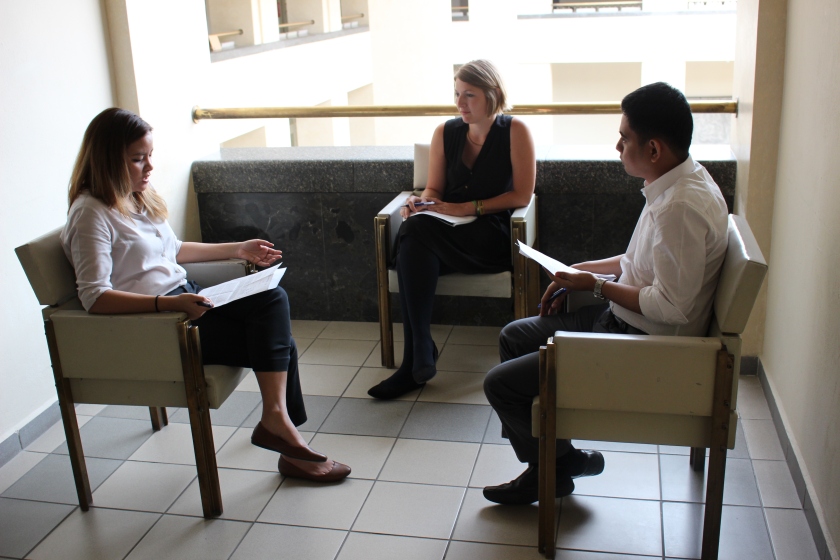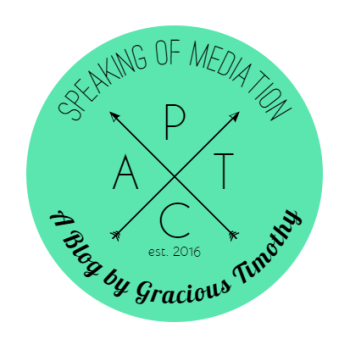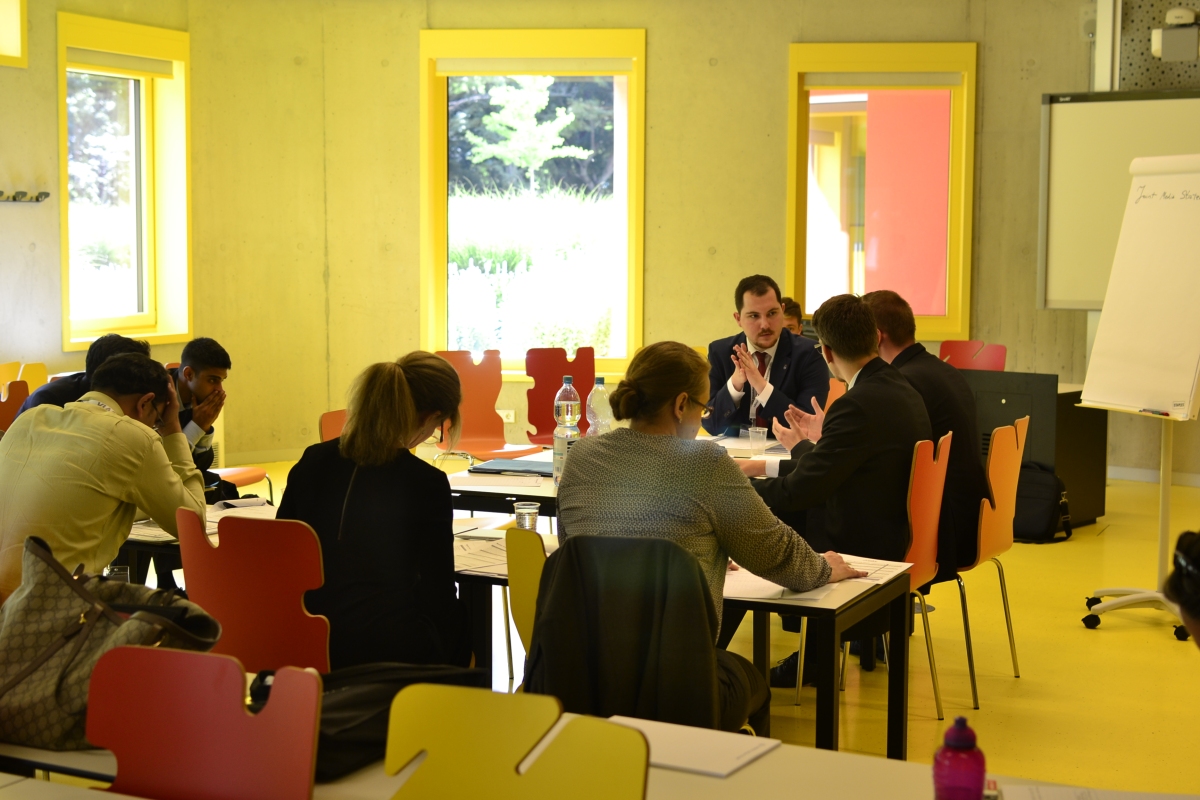Dear readers,
This piece is in continuation to an old post – ‘Tips for Students Participating as Mediators in Mediation Competition‘ – which focussed much into what student mediators can do in their preparations. In principle, most of it holds good even for negotiators, and so, this piece is more of an addendum to what has already been said. Again, these tips are not to replace the involvement of a coach or an advisor but something which we could work on at a personal level.
Starting with the basics –
There is a colossal amount of resource out there on ‘commercial mediation’ or ‘business negotiation’ or ‘consensual dispute resolution’, etc. But, in the end, you will realise that all of it talks about the same fundamental principles – seemingly different but exactly the same in substance. The best is to read the ones that will basically make you a Baap, like you’ve read everything there is to know about the theory and the principles, and later get into the nuances of the subject.
I recommend ‘Kluwer Mediation Blog’ to be an amazing place for general reading. It’s the boiling pot of all the interesting stuff. Herbert Smith Freehills regularly posts updates on www.hsfnotes.com with some good material to have a regular read. Other than that, you will find attached these basic reading materials at the end of this blog. Take a good plunge into reading it all!
So that’s about the mediation part of it. But a necessary part of this process is, of course, negotiations. Please… I repeat… please… buy yourselves a personal copy of ‘Getting to Yes’ and ‘Getting Past No’ written by two famous dons of negotiation – Roger Fisher and William Ury. It’s dirt cheap on Amazon! Trust me… that is all you will need to get yourself up to speed with the fundamentals of negotiation. Everything else gets gunned down by these two simple yet great books, especially for a novice. Before you even think about starting to negotiate like a big boss, get your fundas (fundamentals) right and everything else will fall into place.

The representation plans or the mediation plans or negotiation plans –
These are extremely important and students tend to take this very lightly. These are somewhat like ‘position papers’ which sufficiently indicate your pre-negotiation preparations in terms of what your positions and interests are. A successful negotiation is also based upon how prepared you are before you’ve sat across the table with your counterparts. In the competition, your position paper is like a movie trailer and your actual mediation or negotiation is the movie. Your job is simple – make this movie a blockbuster hit!
There’s much more to a position paper than that. Through your position paper, an expert assessor (or judge) comes to understand how much you’ve stuck to your negotiation plan from your pre-negotiation preparations. And if circumstances flip over and come as a surprise during the actual negotiation, expert assessors can see how well you were able to manage the situation and alter the original negotiation plan or how well you recover from a surprise bombed by your counterparts. The confidential information does a very good job in turning tables.
Your negotiation plans are basically the result of brainstorming with your team members and other assistants. If you aren’t really thinking of doing that – PLEASE DO! Generating different scenarios to a dispute using different perspectives is vital in drafting a negotiation plan. There are a few you will find below as part of the preparatory materials – these are only for your reference and not for those copy-pasting exercises.
What should a mediation or negotiation plan cover? – It should contain a case analysis evaluating the respective strategic strong points and weak points of the requesting party and the responding party, their respective needs and interests, their respective BATNAs, and their respective objectives and goals during the mediation.
Mock negotiations –
There’s a ginormous difference between how mocks work in moot courts and how they work in mediations or negotiations. There are no prepared speeches, no prepared answers for expected questions, no authorities to quote, and no memorandums to save your arse. Mediations and negotiations are extremely dynamic. There are variations to your mediation mock or session every time a new person sits opposite you (on the same problem or case). There are too many factors that come into play in every individual session, and so, you cannot quote a strategy or technique as right or wrong – every session is different from the other; every team has its own strategy; every person has a different culture, and every team comes with different negotiation plan.

So, what can you do to prepare? –
- Have a set of random people with whom you can arrange mock sessions. You may choose to do this with your friends or foes, lovers or haters, juniors or seniors, whoever! You’ve got to test yourself against all sorts of people to see how well you’re capable of managing and communicating with people with different emotional and intellectual levels; different values and perspectives. It doesn’t matter if they do or don’t know how to negotiate because then the task is on you to drive the process in a principled fashion.
- Video record your mock sessions and see you roleplay. Be critical about how you’ve performed; about your body language and posture; your team coordination; your speech; your tone, etc.
- Choose a really good partner – someone you know very well and are confident about what that person will say during the negotiation. You need to be able to trust in your partner’s judgment and decision because during the competition you usually have no choice but to go with the flow. You cannot show any signs of disagreement and concern. Team composition is crucial. (That doesn’t mean you just tag along with your girlfriend or boyfriend! – emotional compatibility isn’t the same as professional compatibility).
- Create subtle ways of communicating with your partner. Something visible that assessors can also take a note of. Avoid scribbling with your pens on a piece of paper and all that kind of jazz. It’s annoying! When I say subtle, I mean something like gently sliding a pen or a glass of water to communicate a ‘Yes’ or a ‘No’ to your partner; or using the ‘click’ sound of a pen to communicate the use of a strategy, etc.
- Develop as many scenarios of the problem as you can. Pan out all the possible settings that could come your way from the other side in a mediation or negotiation session. This is something that you’ve also got to do while preparing your mediation or negotiation plans. The exercise helps you in being more flexible to situations and outcomes.
- Finally, watch some good videos that you can find on YouTube. There are a few good mediation mocks online. They will surely be handy when it comes to preparing oral statements, setting the tone, making a pitch etc.
A good friend of mine, Omar Karam, writes something very interesting and I wholly agree when he says that ‘sometimes… no plan is the best plan’. Let me elaborate on this as my last tip. At the expense of sounding inconsistent, it is also crucial during the competition that you let go of your homework. Sometimes you just need to let go of the things you’ve worked on for weeks and months so that you can be more flexible with your strategies. If you do not do so, it can sometimes turn against you. You might find it tempting to say something that doesn’t necessarily “fit” into the conversation you’re having. Even if you have a ready strategy lingering in your mind, and even if you have a clear chance to say what you’ve prepared to say all along, sometimes it’s better to just let it go. Let the conversation flow and don’t let the process be held back. I know that we all want to achieve our interests but sometimes taking a step back at the right time, even if it was your best move, could be the right thing to do because even your best move executed at the wrong time can be nothing but a bad move. Besides, the confidential information can, to a certain extent, nullify your strategies and schemes. This is also why you need to be able to let go what you’ve worked on, and be flexible to the given situation. And you do not have to worry about that because, if you’ve got your fundas right, things will fall into place.
I guess that’s pretty much everything I wanted to briefly touch upon. Thanks for your interest in this blog. I hope this was helpful enough to give you decent a kick-start. The comment section is below if you have something say and/or if you have to say something. May the Force be with You!
Reading Materials –
Click here and download the reading materials. [More materials were added on 3rd December 2016.]



Dear Gracious,
Thank you for your kind guidance. I just stumbled upon this and I found it really useful. However, the link for reading materials is not working so I kindly request you to re upload them or mail them to me on the email provided down below.
LikeLike
dhruv.srivastava4@gmail.com
LikeLike
Hello the reading material link isn’t working!
LikeLike
Hello Gracious. Thank you for such an informative article. Could you please re-upload the link since it is not working? Thank you!
LikeLike